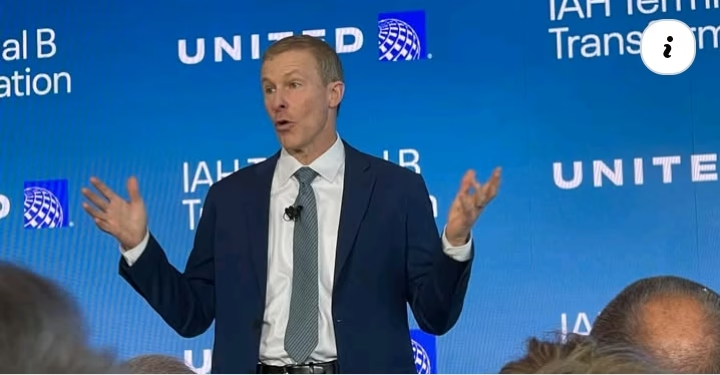United Airlines CEO Scott Kirby recently took center stage in a strategic address that highlighted the airline’s commitment to navigating through a challenging aviation landscape while setting the stage for future growth. Kirby’s message to stakeholders was clear: while the airline industry is currently facing short-term pain, particularly from operational disruptions and fluctuating demand post-pandemic, these challenges are mere stepping stones towards achieving robust long-term gains.
In his address, Kirby acknowledged that the airline has been grappling with various hurdles, including severe weather events, labor shortages, and rising fuel costs. However, he emphasized that these issues, while problematic in the short term, should not overshadow United’s larger vision. “We are in a cyclical industry,” Kirby stated. “Yes, we face challenges today, but we are strategically positioned for a resurgence that will redefine the future of travel.”
A crucial aspect of Kirby’s vision involves United’s significant investment in modernizing its fleet and enhancing customer experience. The CEO hinted at a major announcement in the coming weeks regarding fleet upgrades, indicating that United is on the cusp of a transformative phase. This move aligns with the broader industry push towards sustainability and efficiency. “We are committed to not only enhancing operational efficiency but also making substantial strides in reducing our carbon footprint,” Kirby said, referencing the airline’s goals in line with global sustainability targets.
Additionally, Kirby pointed towards the airline’s focus on technological advancements. United has been at the forefront of integrating state-of-the-art technology to improve operational reliability and customer service. The CEO hinted that further innovations could be revealed soon, promising to enhance passenger experiences and streamline operations.
Kirby also discussed United’s efforts to expand its route network, particularly in underserved markets. He pointed out that the expansion would not only cater to growing travel demand but also improve connectivity between regions, fostering economic growth. This commitment to broadening its reach could position United favorably against its competitors as the travel sector continues to rebound.
Another focus of Kirby’s address was on talent acquisition and retention within the airline. Recognizing that the human aspect is crucial for operational success, Kirby outlined initiatives aimed at ensuring employees are motivated and adequately supported. “Our workforce is our strongest asset, and investing in our people is just as important as investing in our fleet,” he remarked, hinting at possible new training programs and benefits aimed at enhancing job satisfaction among staff.
As the airline industry grapples with ongoing challenges, Kirby’s optimistic outlook is underscored by a clear strategy that places United Airlines on a path toward recovery and growth. With the anticipation of a significant announcement luridly hovering in the air, stakeholders are eager to see how United will further solidify its position as a leader in the aviation industry. Kirby’s assurance that short-term setbacks will not hinder long-term aspirations serves as a clarion call for resilience and innovation in a rapidly evolving market, leaving many excited for what lies ahead for United Airlines.
